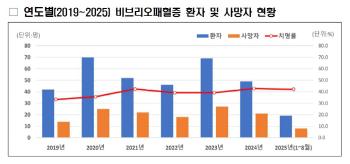a small habit of saving electricity bills
Sep 16, 2025
|
Interest in saving is increasing as the burden of electricity tax increases due to the recent increase in energy prices. However, saving electricity is not a huge investment, but rather a small habit in life. Accumulation of seemingly trivial actions, such as unplugging, closing the refrigerator door, and controlling the temperature of the air conditioner, makes a clear difference in the monthly electricity bill. Let's take a look at the specific methods that can be practiced from now on.
1. Unplug electronics that are not in use
Even if the power is turned off, electricity is consumed by standby power. Just unplugging devices such as TVs, microwaves, and computers can reduce home power usage by up to 5-8%. If it is cumbersome to pull it out every time, it is convenient to use a multi-tap switch. It is important to manage it habitually because standby power is not visible but accumulates steadily.
2. Open the refrigerator door briefly and maintain proper temperature
The refrigerator runs 24 hours a day and is a big part of home power use. When you open the door frequently, the internal temperature rises sharply and consumes more power. The most efficient is the refrigerator at 3-5℃ and the freezer at ?18℃. In addition, if you fill up too much food, the cold air does not circulate, so you use more power. The habit of keeping only as much as possible and keeping the door open short is the key to saving.
3. To replace with LED bulbs
Lighting is one of the areas of high power consumption in the home. LED bulbs consume up to 80% less power and have a much longer life than incandescent or fluorescent lights. Initial replacement costs are incurred, but in the long run, electricity tax savings are great. In particular, you can feel the effect right away by replacing the living room, kitchen, and study room that use a lot of time.
4. Efficient use of boilers and water heaters The key to saving electricity in winter is the management of boilers and water heaters. It is necessary to not increase the boiler temperature too much and to turn off the power when going out. It is recommended to operate the water heater only when necessary and actively utilize the timer function because unnecessary power waste increases if the water heater is left on for a long time. Heating increases efficiency when heating tents and insulation curtains are combined.
5. Collect and wash the laundry, and minimize the dryer
It is more power efficient to collect and do laundry at once rather than doing it often in small amounts. Since dryers are home appliances that consume a lot of electricity, it is desirable to make the most of natural drying if the weather permits. If you turn the dryer only when necessary, and use the power saving function rather than the drying mode, you can reduce the charge burden.
6. Adding small savings habits to life
Less noticeable habits, such as lowering TV screen brightness or reducing microwave usage time, also contribute to savings. It is better to store electric rice cookers right after cooking instead of keeping them warm, and laptops use power saving mode to increase energy efficiency. The accumulation of small habits is, after all, the most powerful way to reduce electricity prices.
Saving electricity doesn't require special skills or big costs. Even small practices such as unplugging, refrigerator management, and air conditioning temperature control can see a clear saving in a month's electricity bill. At the same time, these habits reduce the Earth's energy waste and also contribute to environmental protection. If we practice one by one from today, we will be able to reduce the burden on households and create a sustainable life.
This article was translated by Naver AI translator.














